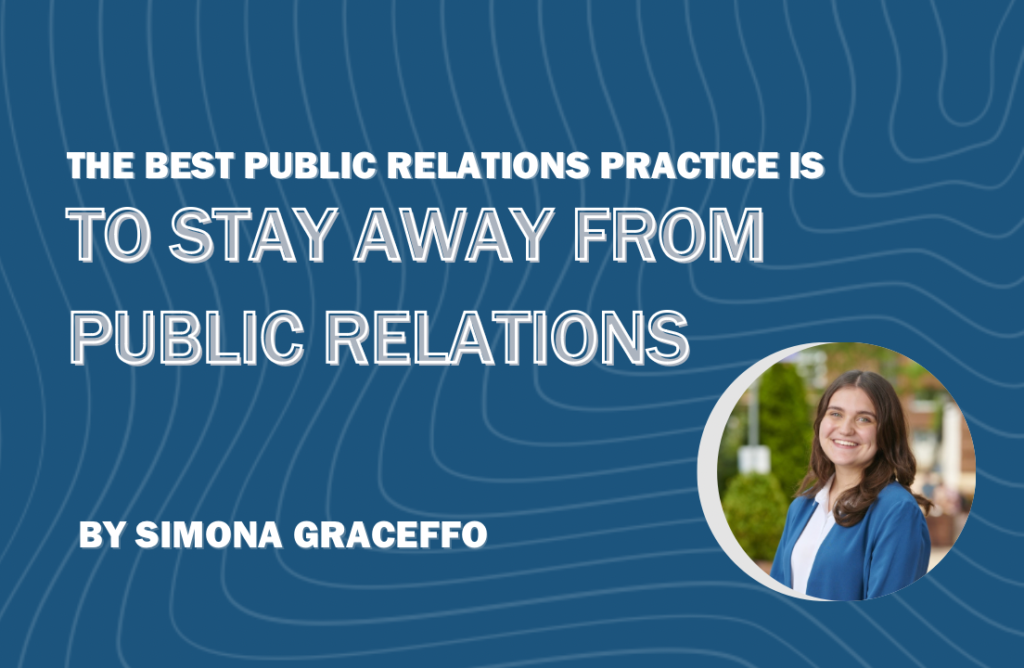The Best Public Relations Practice is to Stay Away From Public Relations

Okay, not really. But there are a lot of missed opportunities when public relations pre-professionals and professionals ignore other disciplines.
Diversifying your worldview.
Communication and PR-focused education and resources give professionals and pre-professionals the outlets and technical skills to effectively communicate and organize messages. But other disciplines can help with understanding audiences that PR professionals are trying to reach.
One of the goals of communication is to promote and instigate human connection and involvement. To do this, we must understand one another. If possible, students and professionals of PR should have an interdisciplinary background. A diverse education allows for a wide scope of knowledge and an even wider range of genuine connections.
Education outside of the classroom.
If you do not have room in your schedule for extra classes outside of your field of interest, or if you are no longer in a place that offers formal education, there are still plenty of ways to become better versed in other disciplines. Below you can find some available resources. All of them are free.
- This American Life (Public Radio/ Podcast)
- Area this will help you in: Storytelling.
- Why this is important: The public is filled with millions of people, each with their own story. By listening to them, PR professionals can be better at creating their own stories. Brands and companies each have their own histories and insight. How we share them says a lot.
- Vox (Digital Videos)
- Area this will help you in: Economics, science, history, technology and more.
- Why this is important: Understanding socioeconomic relations is an important part of society, especially if you are looking for monetary commitments from your audience. Vox videos explain complicated economic and scientific phenomena in simple language.
- Duolingo (App, Webpage, Blog)
- Area this will help you in: Language, linguistics, culture.
- Why this is important: PR professionals must use their words to persuade, comfort and promote. Our words are (almost) everything. Duolingo’s blog aims to look at different cultural and linguistic customs. Understanding linguistic history and culture is an important part of communication. You can also use the app to learn another language and expand the number of people you can communicate with.
Moving Forward
The above resources are just some examples of how you can continue your education outside of your PR-based classrooms and jobs. There are plenty of other resources out there that will help you keep a pulse on common values, concerns and practices of potential audiences.
So, while it may not be a good idea to turn away from public relations resources entirely, there is a lot of information to be learned and gathered outside of your professional setting and field of interest. By engaging in other disciplines, you will be able to speak to the values and interests of those around you. You can better understand history, culture and language that is not your own. This ability to connect with people and understand different areas of their life will make you a better PR professional.
Simona Graceffo studied communications at Manhattan College, concentrating in integrated marketing communication. Valuing an interdisciplinary education, she also completed minors in religious studies and psychology. She wishes to be a listener as well as a communicator and looks forward to a lifetime of learning. You can connect with Simona on LinkedIn.

